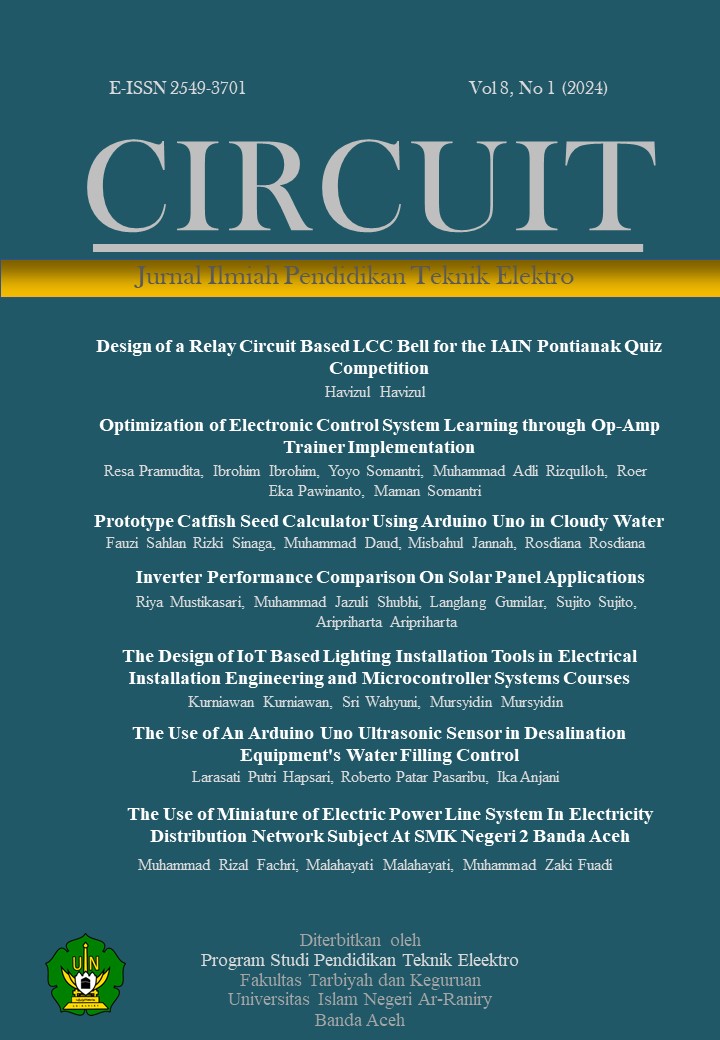The Impact of Learning Models for Explicit Instruction on Student Learning Outcomes in Vocational High School 2 Banda Aceh
DOI:
https://doi.org/10.22373/crc.v8i1.19678Keywords:
Eligibility Criteria for Learning Modules, Peraticum Modules, Electrical Power Installations.Abstract
The Explicit Instruction learning model is a learning model that positions the teacher as a facilitator and organizer in the learning process. This research aims to see the effect of the explicit instruction learning model in improving student learning outcomes in the Basic Passive Electronic Components subject. This research uses a quantitative type method with an experimental approach (one group pretest-posttest design) using pre-test and post-test question sheet instruments. The research subjects consisted of 25 students of class X Electronics Engineering at SMKN 2 Banda Aceh. The research results showed that the application of the explicit instruction learning model had an effect on the learning outcomes of students at SMK N 2 Banda Aceh as evidenced by the post-test results which increased by 44 points. This shows a positive change in student learning outcomes. Based on the research results, it can be concluded that the application of the explicit instruction learning model has an effect and can improve student learning outcomes at SMK N 2 Banda Aceh.
Downloads
Published
Issue
Section
License
Authors who publish in CIRCUIT: Jurnal Ilmiah Pendidikan Teknik Elektro agree to the following terms:
- Authors retain copyright and grant the journal right of first publication with the work licensed under a Creative Commons Attribution-ShareAlike 4.0 International License (CC BY-SA 4.0) that allows others to share and adapt the work with an acknowledgement of the authorship and initial publication in this journal
- Authors are able to enter into separate, additional contractual arrangements for the non-exclusive distribution of the journal's published version of the work (e.g., post it to an institutional repository or publish it in a book), with an acknowledgment of its initial publication in this journal.
- Authors are permitted and encouraged to post their work online (e.g., in institutional repositories or on their website) prior to and during the submission process, as it can lead to productive exchanges, as well as earlier and greater citation of published work. (See The Effect of Open Acces)

